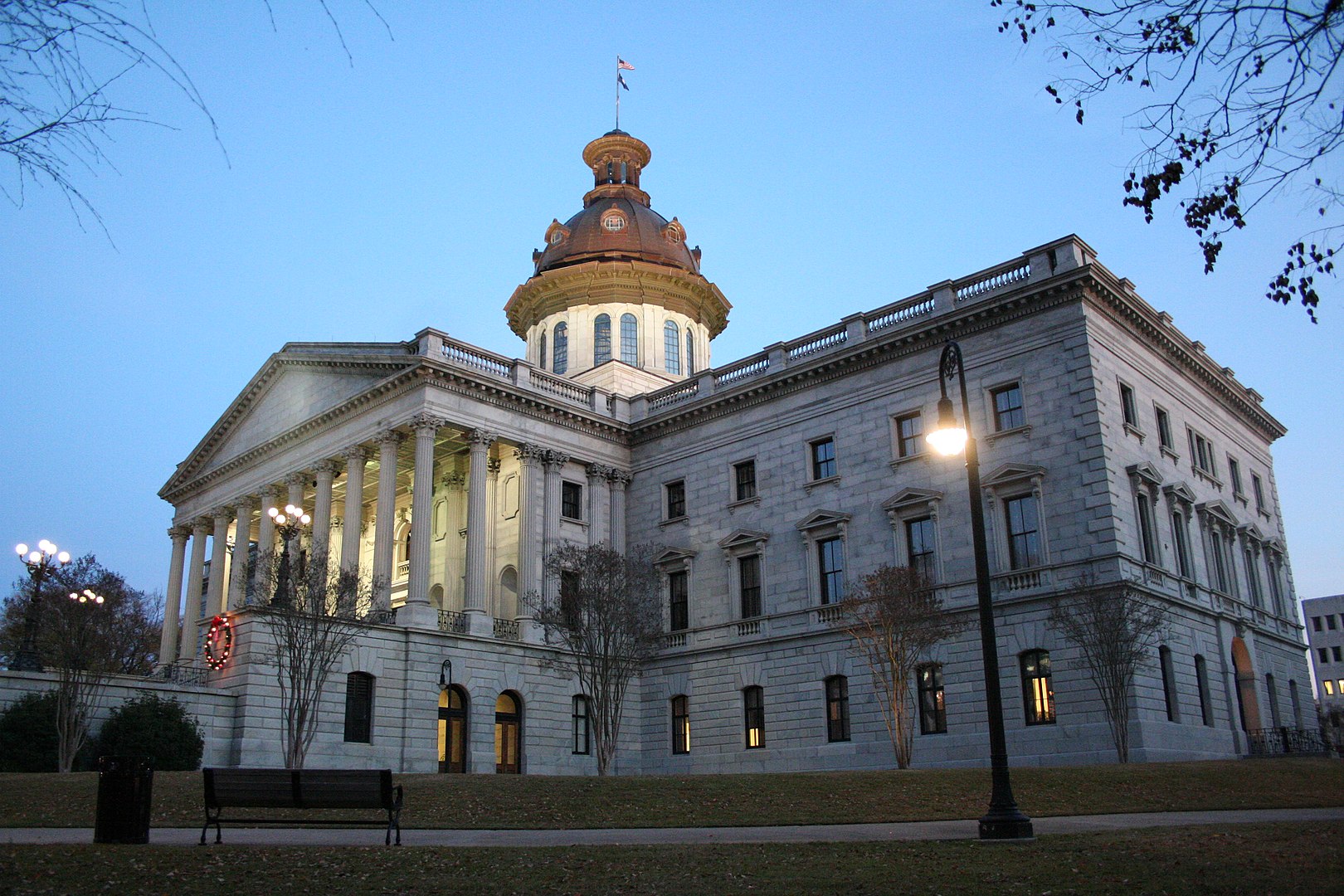CHARLESTON, S.C. (CN) — The South Carolina Supreme Court on Tuesday heard arguments on the constitutionality of a law that would ban most abortions after about six weeks.
It's the second time in less than a year that the issue of abortion has come before the court.
Justices grilled the state's attorneys as they sought to explain how a new "fetal heartbeat" law was different from one struck down by the high court in January for violating the state constitution’s privacy protections. That decision was reached by a narrow 3-2 margin. Justice Kaye Hearn, the only woman on the bench, retired after writing the majority decision in the case.
The make-up of the court has changed since them. The state legislature voted to replace Hearn with Justice Gary Hill, creating the only all-male state Supreme Court in the nation.
State officials seemed hopeful that changes on the court — coupled with changes in South Carolina's proposed abortion ban — would see the new law pass judicial scrutiny this time.
South Carolina's new law would ban most abortions after fetal cardiac activity is detected, or after about six weeks of pregnancy. The law allows limited exceptions for fatal fetal abnormalities, rape, incest or to protect the mother's life.
The bill survived unusually fractious debate in the legislature as moderate Republicans and Democrats squared off with members of the far-right Freedom Caucus, which has advocated for extreme restrictions on abortion. Senator Katrina Shealy, a Republican, was censured by her local party for her opposition to the law. Shealy is a member of the “Sister Senators,” a bipartisan coalition of women senators who tried to filibuster the bill.
Gov. Henry McMaster signed the bill into law on May 25, but Planned Parenthood and three other state healthcare providers promptly sued. A circuit court judge blocked the law from going into effect until the high court could rule on its constitutionality.
Attorneys for the state, Grayson Lambert and Thomas Hydrick, argued Tuesday that lawmakers addressed the justice's concerns when writing the new law. The new act requires individual and group health plans in the state to cover contraceptives, including emergency contraceptives, empowering couples to make informed decisions in family planning, the attorneys said.
The attorneys also argued six weeks was enough time for women to make an informed choice, pointing to data from the state health department that showed 48 percent of abortions performed in 2021 took place within six weeks of pregnancy.
The new justice, Hill, asked only a few questions during Tuesday's hearing. Meanwhile, the state's attorneys appeared to be tailoring their arguments to sway Justice John Cannon Few.
Few wrote a concurring opinion in the first case, Planned Parenthood v. State, which gave Republican lawmakers hope the fetal heartbeat bill could survive judicial scrutiny. In that opinion, Few found that the state had a compelling interest to preserve the lives of unborn child, with an important caveat: Lawmakers must consider the mother's right to make an "informed decision" in crafting the law.
In 2021, evidence suggested lawmakers never addressed that "necessary factual question" before passing an abortion ban, Few wrote. For that reason, the law appeared to be an "arbitrary" and therefore unconstitutional.
This time, lawyers for South Carolina stressed the state senate heard testimony from medical experts about fetal development to help weigh maternal rights against purported fetal rights. Few considered whether increased access to contraceptives really provided women the ability to make an informed decision.
“I think it’s a valid notion for the state, as part of its policy judgment, to say, ‘We want you thinking about your choices early,’ rather than waiting to get hit in the head with a two-by-four when you get pregnant,” he said.
Catherine Humphreville, an attorney for Planned Parenthood, said federal law already requires insurers to cover contraceptives, making this provision in the fetal heartbeat law superfluous. Besides, it was not practical for women to routinely take pregnancy tests, she said.
Chief Justice Donald Beatty suggested state attorneys may have miscalculated by focusing their arguments on Few.
Beatty asked Lambert, one of the lawyers for the state, why the court found the original six-week ban unconstitutional. Lambert responded that Hearn and Beatty had determined six weeks was not enough time to obtain an abortion but that he believed Few had reached a different conclusion.
Lambert read from the justice’s opinion to make his point. Beatty said the justice’s reaction to his reading told the truth.
“He disagrees with you,” Beatty said. Few declined to speak on the matter.
Subscribe to Closing Arguments
Sign up for new weekly newsletter Closing Arguments to get the latest about ongoing trials, major litigation and hot cases and rulings in courthouses around the U.S. and the world.









